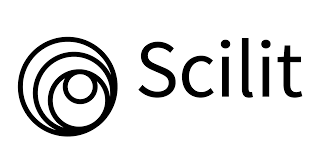REPRESENTASI DIFABEL DI RUSIA DALAM FILM CORRECTIONS CLASS (KLASS KORREKTSII) KARYA IVAN TVERDOVSKY
DOI:
https://doi.org/10.38043/jids.v6i1.3397Keywords:
Analisis Wacana Kritis, Difabel, Film, Ivan Tverdovsky, Budaya RusiaAbstract
Film as a medium of mass communication can consciously and unconsciously affect how people act and perceive certain matters. Ivan Tverdovsky, in 2014, directed a film titled ????? ????????? (Klass Korrektsii) which raised the issue of disability in Russia. This research aims to analyze the representation of the disabled people in this particular Russian film. This research applied a critical discourse analysis method by Norman Fairclough, which is supported by the representation theory by Stuart Hall. The critical discourse analysis method will be used to reveal the hidden meaning of the articulated dialogue among the characters in the film ????? ????????? (Klass Korrektsii), while Stuart Hall's representation theory will help to see the conditions outside the text specifically the way the society treat people with disabilities in Russia. The results point out that, despite of the laws protecting people with disabilities, discrimination against them still exists in Russia
Downloads
References
A.V. Fedorov. (2017). The Western World in Soviet and Russian Cinema (1946-2016), Russian Education & Society, 59:7-9, 319-464.
Bhalla, Ajit., & Lapeyre, F. (1997). Social Exclusion: Towards an Analytical and Operational Framework, Development and Change,28 (3): 413-433.
D. N. Muthia Sayekti. (2018). Menjadi Bintang atau Binatang: Analisis Wacana "Othering" dalam Film "The Greatest Showman". Sabda: Jurnal Kajian Kebudayaan, vol. 13, no. 2, pp. 100-109.
Dislife.ru. (2014). ?????-?????????: ??????? ? ?????????? ??? ??? ???????? ?????? [St. Petersburg: Jalur Landai dan Lift Masih Menjadi Mimpi]. Diakses pada 01 Desember 2021. https://dislife.ru/articles/view/30199.
Elena, Tarasenko. (2004). Problems and Perspectives of Disability Policy in Russia: The Move from Paternalism towards Disability Rights?. Disability Studies Conferences Archive.
Eriyanto. (2001). Analisis Wacana. Yogyakarta: LKiS.
Fairclough, Norman. (1989). Language and Power. New York: Addison Wesley Longman.
Fairclough, Norman (1992). Discourse and Social Change. Cambridge: Polity Press.
Hall, Stuart. (1997). Representation: Cultural Representation and ignifying Practices. London: Sage Publications.
Human Rights Watch. 2015. Left out? Obstacles to Education for People with Disabilities in Russia. Diakses pada 04 November 2021. https://www.hrw.org/report/2015/09/01/left-out/obstacles-education-people-disabilities-russia.
Iarskaia-Smirnova, Elena., & Pavel Romanov. (2007). Perspectives of Inclusive Education in Russia, European Journal of Social Work, 10:1, 89-105.
Khudorenko, E. (2011). Problems of the Education and Inclusion of People with Disabilities, Russian Education & Society, Vol. 53, No. 12, p. 82-91.
Levitas, RA., Pantazis, C., Fahmy, E., Gordon, D., Lloyd, EHRR., & Patsios, D. (2007). The Multi-dimensional Analysis of Social Exclusion. (246 plus additional Appendix 7 ed.) Department for Communities and Local Government (DCLG).
McQuail, Denis. (2011). Teori Komunikasi Massa McQuail, Edisi 6 Buku 1. Jakarta: Salemba Humanika.
Monaco, James. (2000). How to Read a Film. New York: Oxford University Press.
Muzykant, V., Burdovskaya, E., Souhila, K., & Ruiqi, H. (2021). Media Platforms as Influential Tool of Russian Language Learning Abroad. ????????????????, (2), 350-362.
Nosenko-Stein, E. (2017). "They fear us because we are Other": attitudes towards disabled people in today's Russia, Salud colectiva, 13(2), 157–170.
Nurani, Nafisah Febby. (2020). Analisis Wacana Kritis Penyandang Disabilitas dalam Film Dancing In The Rain. Surabaya: UPN Veteran. Jurnal Komunikasi, Media dan Informatika.
Office of the High Commissioner for Human Rights. Committee on the Rights of Persons with Disabilities examines the report of Russia. Diakses pada 07 November 2021. https://www.ohchr.org/en/NewsEvents/Pages/DisplayNews.aspx?NewsID=22733&LangID=E.
Phillips, Louise dan Marianne Jørgensen. (2002). Discourse Analysis as Theory and Method. London: Sage Publication.
Phillips, Sarah D. (2009). "There are no invalids in the USSR!" A missing Soviet chapter in the new Disability History, Disability Studies Quarterly, Vol. 2, No. 3.
Rimmerman, Arie. (2014). Social Inclusion of People with Disabilities: National and International Prespectives. Cambridge University Press.
Turner, Graeme. (1999). Film as Social Practice. New York: Routledge.
Downloads
Published
How to Cite
Issue
Section
License

This work is licensed under a Creative Commons Attribution-ShareAlike 4.0 International License.

















